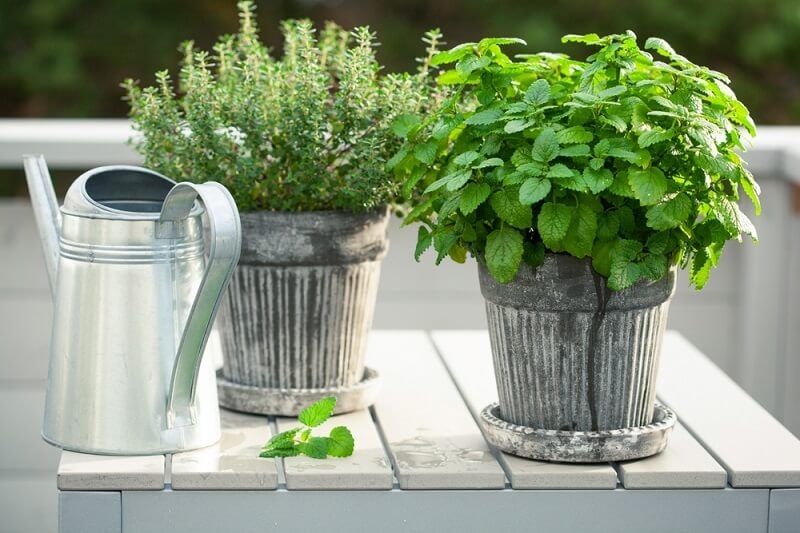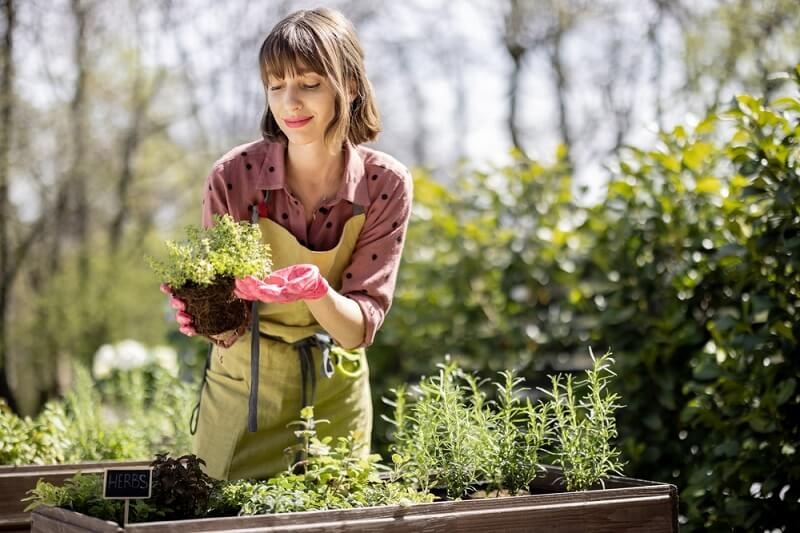
Tending a herb garden is one of the most satisfying pursuits that you can spend at home. Not only do fresh herbs add flavor to your meals, but they also bring greenery and life to your living room. Whether your kitchen counter has a small indoor herb garden or a larger one in the backyard, knowing how to care for a herb garden ensures that your plants will flourish. You can grow herbs all year round with a bit of patience, the appropriate arrangement and regular care.
Herb gardening is not hard, but it requires regularity and affection. Herbs are sensitive to the correct proportion of water, sunlight and pruning. Herbs are the best place to begin if you are an introduction to gardening, as they are forgiving and can thrive in both indoor and outdoor areas. We will consider the best way of cultivating them.
Location is the very first thing to do when taking care of herb gardens. Herbs require sun in order to grow robustly. The majority of herbs need a minimum of 6 hours of sunshine a day. An ideal place to have a home kitchen herb garden would be a sunny kitchen window. In the case of outside spaces, place the plants in a location that receives morning sunlight and is in the shade afternoons.
Containers are your friends in case you are growing a home herb garden where you cannot do it outside. Herbs do not need deep pots. A 6 to 8-inch deep container suffices. Ensure the pots have holes to allow water to drain out of the pots to prevent rotting of roots. Lightweight plastic containers can also be used to set up indoor herb gardens, although clay pots are also popular.
Herbs are not just plants. They are little companions in your kitchen. Choose the ones you enjoy cooking with the most. Basil, parsley, mint, rosemary, oregano, and thyme are some of the most loved herbs in the USA. When you use herbs you grow yourself, every dish feels special.
Also read: Soil Preparation: Creating the Perfect Base for Your Garden

Once you have planted your herbs, the next step is maintaining them. Every plant has its needs, but with some simple steps, you can keep your garden healthy and green.
Water is life for plants, but too much water can harm them. Herbs like slightly moist soil but not soggy conditions. A good rule is to water when the top inch of soil feels dry. Indoor herb garden plants may need less water compared to outdoor ones because they are not exposed to the wind and sun as much.
Sunlight is food for herbs. If you have a home herb garden outdoors, place it in a sunny spot. For indoor spaces, a south-facing window is best. If sunlight is limited, you can use grow lights. They mimic natural light and keep your indoor herb garden thriving even during the darker winter months.
Herbs do not need heavy feeding, but they still benefit from a little boost. Use an organic fertilizer every 4 to 6 weeks. This helps them grow stronger leaves and richer flavors. For an indoor herb garden, a liquid fertilizer mixed with water is a simple option.
Your herbs will thank you when you give them daily attention. A quick look each day helps you spot any problems early.
One of the best parts of herb garden care is trimming the leaves and using them in your meals. Regular pruning helps plants grow fuller instead of tall and leggy. Pinch off the top leaves once the plants are a few inches tall. Always harvest from the top, not the bottom, to keep the plant healthy.
Even a small herb garden in home spaces can sometimes attract pests like aphids or spider mites. If you notice tiny bugs, wipe the leaves gently with a damp cloth or spray them with soapy water. Avoid using harsh chemicals since you will be eating these herbs.
Over time, soil can get compacted or lose nutrients. For your home kitchen herb garden, loosen the soil gently every few weeks and replace the top layer with fresh potting mix if needed. This gives the roots space to breathe and grow.
Your herb garden can be more than just a cooking helper. It can also add beauty to your living space. With a little creativity, you can design a herb garden that makes your home feel more alive.
However, the indoor gardens require a bit more affection since they do not get the assistance of nature, like the outdoor conditions do. Nevertheless, they are easy to carry around and entertain.
Herbs that grow indoors like to stay at the same temperature. Do not put them close to heating vents or drafty windows. Store them at a temperature of between 65 and 75 degrees. Low natural sunlight will require LED grow lights.
The indoor air, particularly during the winter, may become dry. Such herbs as basil and parsley have a small share of humidity. You may also keep a tray of water close to your plants or even spray them very lightly so as to keep the air humid.
House herbs will lean towards the light. Every few days, turn your pots to ensure that your plant receives equal sunlight on all sides. This helps them to continue growing in a balanced manner and appearing healthy.
It has a princely quality to growing your own herbs. You are proud of growing fresh basil and sprinkling it on pasta or making soothing mint tea directly out of your plant. Herb gardens enhance taste, beauty and tranquility in your house. Regarding basic everyday care, they will pay you with freshness and happiness throughout the year.
This content was created by AI